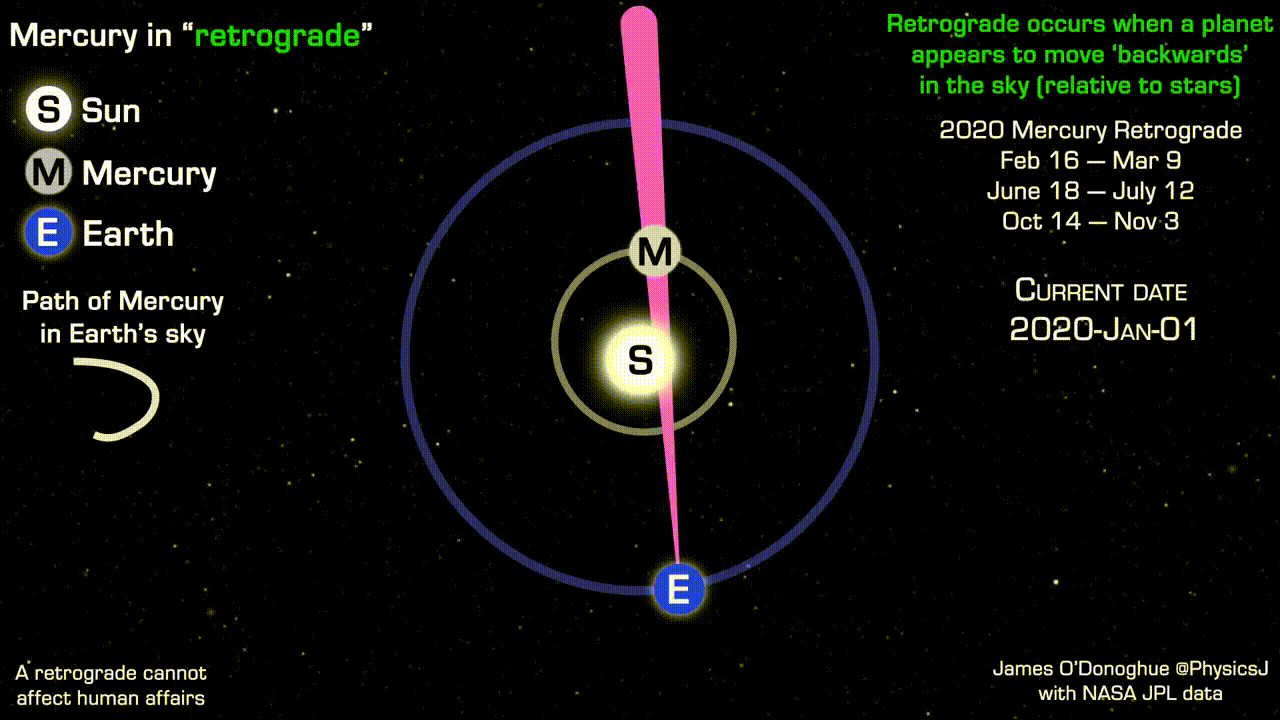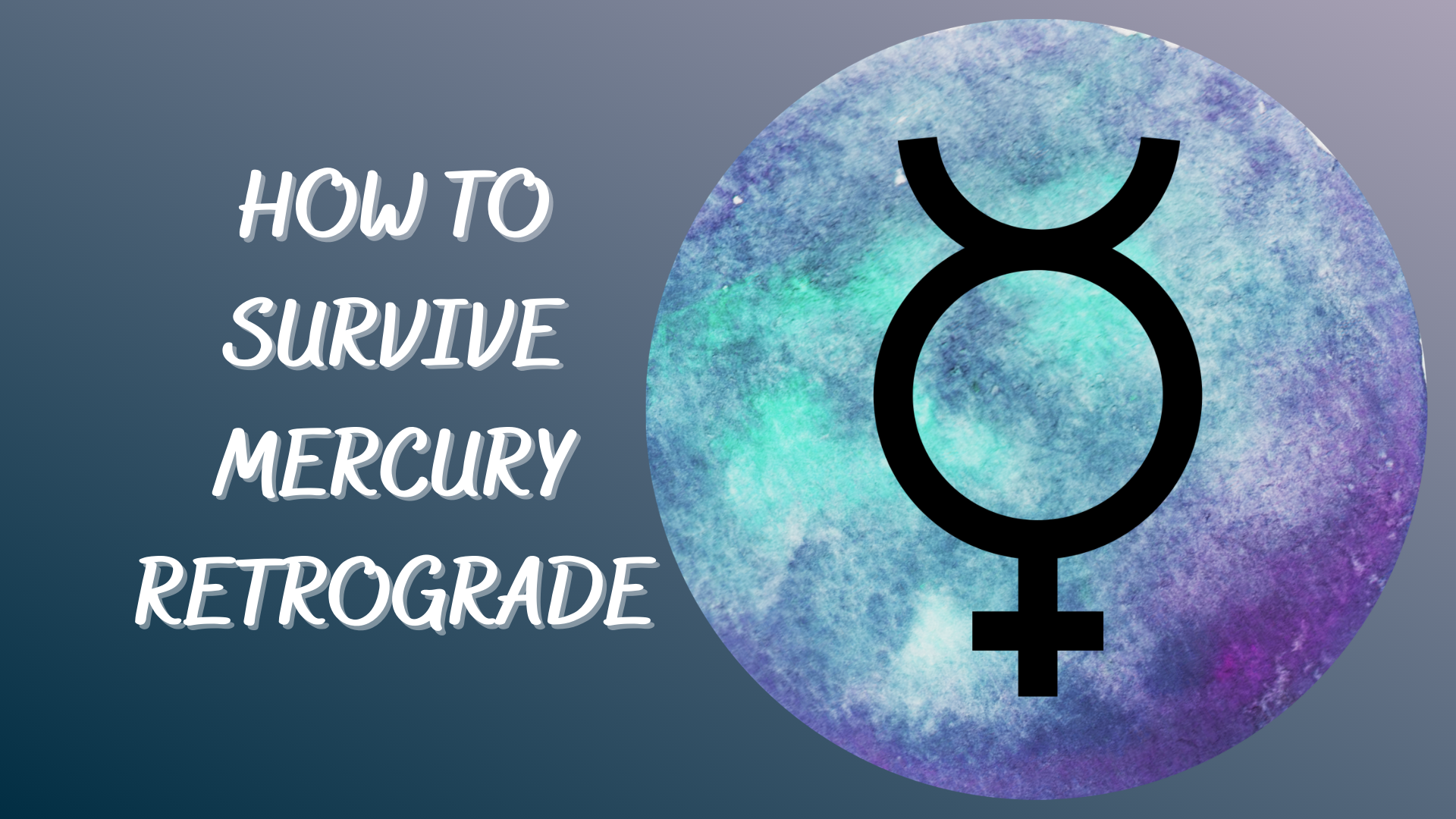Mercury is in retrograde! Should you be concerned?
What is Mercury Retrograde?
Mercury goes into retrograde about three to four times a year. Retrograde refers to an apparent change in the planet’s direction, but it’s actually an optical illusion. Mercury’s orbit is smaller and faster than Earth’s, so when Mercury catches up to Earth it appears like Mercury is backtracking, when it’s actually not. Essentially, whenever a planet passes Earth, or vice versa, from Earth’s point of view the other planet appears to temporarily change direction.

Okay, so Mercury isn’t actually in retrograde. But can Mercury (or the planets or stars) impact our lives?
The two forces that can act over that distance are electromagnetism (such as light) and gravity. If light was the driving force, the sun would be the largest source of astrological effects. And as for gravity… The force of gravity depends on mass and distance, so the bigger an object is and the closer it is to you, the more its gravity affects you. The smart phone you’re reading this on would impact you more than Mercury!
But what if you’ve experienced the impacts of Mercury retrograde?
This is tricky, because we tend to assume our experiences are solid evidence. But as Richard Feynman warned, “YOU are the easiest person to fool.”
If you’ve perceived impacts from Mercury retrograde – which, as a reminder, isn’t real – it was probably due to expectation bias and confirmation bias. Essentially, we notice things more when we expect them. But you probably also had things happen to you when Mercury wasn’t in retrograde, yet you couldn’t blame it on the planet.
So if you enjoy star gazing, enjoy the show! But rest assured, it’s simply not possible for Mercury in retrograde to impact you in any way.
To learn more
